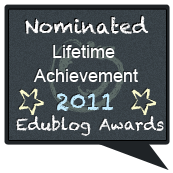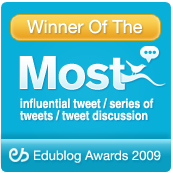For the first time since I have been supervising student teachers, I have a group at the start of the year, as opposed to my usual assignment at the latter half of the school year. This has brought to light a subject that I often fought against as a teacher, and now have to counsel student teachers on how best to approach the subject. Summer Reading: how do we assess it?
New York State’s recommendation for reading is that each student completes reading 25 books per year. Most adults don’t even approach that goal, but adults have to work and their time is committed to other stuff. It is understandable that adults’ time must be dedicated to other stuff. Kids have more time to read than adults. In a 24 hour period a kid’s time is taken up by: one hour preparing to get to school, seven to eight hours in school, two hours extra-curricular (depending on the sports’ season), and one to two hours of homework. Let’s allow an hour and a half to eat dinner and chill. That has accounts for Eleven to Thirteen hours. If we consider the ten to twelve hours of recommended sleep, that would leave one to two hours per day that a kid could be, and should be reading to get to 25 books per year. It all works out on paper. I always loved the expression, “Man plans, and God laughs”.
For all of the reasons mentioned it is difficult to get all 25 books done in the school year. Of course, if you ever went into a Border’s Book’s during the summer when there was a Border’s Books, you would see an awesome display of Books for the Summer Reading Lists for your school. Summer reading is highly recommended to keep those young brains sparking away. Many districts assign multiple books to really charge up those summer-lazy brains. Hopefully, thought was given to those book lists to be high interest level books of brevity, so there would be at least a chance of accomplishment. War and Peace is not a beach book. It has been my experience that those who make up these lists are often people who love reading and actually read 25 books per year or more. In their day, they must have been the best students, if we are to consider the New York State recommendations as an indicator. I do believe that reading is important, and we should, most definitely, provide suggested lists to students for summer reading.
That being said, I need to talk a little bit about my understanding of assessment. I always approach assessment as a tool for the teacher. Formative assessment tells the teacher how well the teaching is going. Is there a reason to re-do something, or is it time to move on? Summative assessment is the final result. After all is said and done, how much was learned? It is like a chef who needs to taste the cooking until the diner gets the plate (formative). The diner tasting the meal is the final assessment (summative).
Now we move on to the point of all of this. Students are told that they MUST do the summer reading. This may be in more than one reading and in more than one academic subject. They are also told that there will be a test within a short period of time from the start of school which will go into their average. By the way tests are one form of assessment, so this test should be formative or summative. If the teacher is using it as formative assessment than it is testing how effective the lesson was, but there was no lesson. Therefore, it must be a summative assessment. How much learning was accomplished from the activity?
One would hope that in an ideal situation, we could get most of our students to at least an 85% achievement level. If the entire class did not get there, it might be necessary for the teacher to revisit a number of things to clarify and expand on some ideas. After all a good chef does this to complete the course for the summative assessment of the diner. Sometimes, if at first you don’t succeed… There is always a re-test after fine tuning. This would be wonderful if that was done.
This does not always occur in the real world of education. Some teachers give the final test and what a student gets is what student gets. “You should have completed the reading.” “You had every opportunity and all the time of the summer to get it done.” “ You knew the rules going in.” “ This is the way our department does it.” “ That is what summer reading is all about.” “ I don’t make the rules, I follow them.” Does any of this sound familiar?
What does a failing grade on the summer reading test indicate? After all it is a summative assessment so it should tell us something. Does it indicate the student has a reading problem? Does it indicate that the student fails to make connections. Is it an indication that there is a problem with higher order thinking skills? Does it indicate a need for remediation? Are there emotional problems interfering with learning? These are all possibilities. This is what teachers should be asking of any summative assessment that identifies a student’s failure to learn.
Of course if these are not the questions being addressed by the teacher, there might be another reason for this assessment grade to be averaged into the student’s average. It is not assessment, but PUNISHMENT. The student did not do what he or she was told, and the student needs to pay a price in the form of a lowered average. That should require an asterisk on the grade at the end of the year stating that the average is not a true account of the student’s ability to learn. It has been skewed to account for punishment for not reading over the summer.
Many of those students who receive punishment for not reading do not take it as a constructive criticism, for that is not what it is. It is intended to be a negative experience, as all punishment is. That does not promote reading. There are many ways to assess things beyond a test. Group discussions, and projects based on the reading give reasons to students to complete the reading. Teachers need to remember that we are here to promote and nurture learning and not to punish students into submission. Leave that for the behavior policy. Assessment is not for punishment.
I am sure there will be comments on this and they are welcomed. I am off to read book number two, the year will soon be over!












Unfortunately a lot of our assessing of students skills has little to do with their skills and much more to do with teacher agendas including punishment. As a small aside, the reading of novels may be a good idea to keep the brain sparked and students engaged in learning, but the majority who don’t read on a regular basis won’t. Again they don’t see the redeeming value in reading a novel. Those of us who do read daily rarely make it to 25 books in a year. Also the New Common Core Learning Standards and NYS Regents Reform Agenda is not in favor of reading novels to discuss their content. Like technology, novels are merely a tool. Students are taught and learn skills (not the novel content) through the novel. Let’s get rid of these antiquated ideas…
Tom, while I am a big advocate of summer reading, I’m not as enthusiastic about how it is often approached and “assessed.” You make a valid point—one that should exhort us as educators to review the “system” in place for this activity. The same argument, I think, applies to quizzes over reading assignments. It would be far better to have students produce evidence of their processing of a text’s key ideas as they read rather than quizzing details to find out “who really read the assignment.” We need to think more about what will help students comprehend what they read and less about rewarding or penalizing them for reading (or not). Good thoughts!
Over assessment of reading to find out if an assignment was completed is a sure way decrease students’ enjoyment and motivation to read. There is a lot of evidence that allowing choice increases volume and like any skill, the more one reads the better one gets at it. If we continue to provide students a rest through summer break then perhaps we should take a different approach to summer reading and how it is assessed.
My comment has less bearing on assessment and more on overall motivation theory.
To truly motivate individuals, they must feel competent and believe it is relevant to their being. While it is true, they can select 25 books that are of interest, the idea is that they are not “learning for the sake of learning” or “reading for the sake of reading.” Instead, they are merely do so (if they really even are) because it is mandated.
Individuals want control of their own being. Agency. Self-advocacy.
The best way to continue turning students away from learning for the sake of learning, is mandating work and assessments for the sake of working and assessing.
Both of the previous comments are valid. As a former teacher educator, I want to commend you for guiding your students in this direction. I whole-heartedly agree with your conclusions. How would a teacher test students on all 25 books anyway? Keep up the good work and excellent guidance!
In getting to know my new students, several of them wrote that a goal they have for the year is to “stop hating reading” and to “read for fun and not because [it’s] forced.” I wanted to cry.
I noted the books that each student listed and plopped them into a Shelfari, but I can’t bring myself to “assess” what boils down to compliance with a demand. I did bring up an idea that as a class or as a grade, I’d be happy to help them track the number of books we all read and see just how many books we can finish together in a year.
I am not in America, I am in an International school in Asia. We do not ‘do’ summer reading lists, however some of our American parents ask me for summer reading lists. I suggest to them that maybe they could let their children read what they want to read, go to a book store or library and just spend time there browsing and selecting – with their children selecting without any judgement from the parent, maybe a discussion on the selection rather than a judgement call. Trash is OK. They still want a list.
The summer reading lists usually only include fiction – what about non fiction, magazines, blogs, individual research on the internet and instruction manuals on how to do something, graphic novels,some of the online games require alot of reading to play well, but, this sort of reading doesn’t count because it isn’t on the list. Most kids are reading – a lot – they are just not reading what schools want them to read.
As for testing on the summer reading – Stephen Krashen has loads to say about that through his research – Free Voluntary reading with no assesment at the end leads to more reading. Testing kills reading. And as you say Tom – testing is a punishment for the students who did not read they books they were asked to.
As for setting 25 books per year, why 25? This does not even consider length of the book, reading difficulties, subject matter, individual reactions, time available. It is again a mass production line – read more books without time to reflect and ruminate on the story. For me, taking time after reading a gripping novel is important for me to truly enjoy the story and think about the content. I may take a month to pick up a new book after recovering from the last one.
Let the kids what they want, and if they don’t read what you want them to read – then find them something they will want to read.
[…] Assessment: Formative, Summative, Punitive? For the first time since I have been supervising student teachers, I have a group at the start of the year, as opposed to my usual assignment at the latter half of the school year. This has brought… Source: tomwhitby.wordpress.com […]
[…] Assessment: Formative, Summative, Punitive? For the first time since I have been supervising student teachers, I have a group at the start of the year, as opposed to my usual assignment at the latter half of the school year. This has brought… Source: tomwhitby.wordpress.com […]
Dear Tom, I have so much to interact with you in regard to your new F-S-P ASSESSMENT formulae. Are they applicable to all age-groups and standards? How r they different from our regular Examinations? Would it be possible to adapt this strategy for all the subjects of our Annual Syllabi & Curriculum? Any how, I wish U success in all your future endeavours. Looking forward to hearing from you. Thanks.
[…] Assessment: Formative, Summative, Punitive? « My Island View. Eco World Content From Across The Internet. Featured on EcoPressed Google reveals […]
[…] Assessment: Formative, Summative, Punitive? « My Island View–This has brought to light a subject that I often fought against as a teacher, and now have to counsel student teachers on how best to approach the subject. Summer Reading: how do we assess it? […]
Speaking from one who just went through this (and as one who stil has to grade this): I agree with your thoughts. BUT: the practical matter stands…most kids won’t read without some motivation (did I mention I teach English to high schoolers?). I can barely get most of them to read the books I try to teach them, much less read on their own.
I believe (perhaps more than most) that kids do not see the power and beauty of reading. How do we get back to that? I go through more than 25 books in a year, and I enjoy most of them. How do we pass that on?
Summer reading programs are great! NOT!!! For students living in inner-city areas, rural areas, and other areas with no library access it can be a nightmare. I believe if all students had equal access to books it would be great.
I was subjected to a teacher in college that over assessed, the only word I could think of, for her style. We had to read a very long story in which there was an extreme amount of information, excitement, and all other things you would want in a story. I love reading. The problem was she would ask one question about the story at the next class. If you answered it wrong you were assessed as failing to read the story. Example, in the middle of an international thriller, all the spys were coming to a park. During the climax the author mentioned a woman walking a poodle who had nothing to do with the action. The teachers question was what color was the collar of the poodle? Huh, for a very good reader this detail was just there. For a poor reader this detail never crossed their path as they struggled with main ideas.
Why do we expect our students to love reading and do well when we torture them with assessments? Instead of lessons that make them want to read and explore the content we make them hate opening books. Teach the love of what information is in the book not fear of words.
[…] With our new debate about attendance in school, where the government has suggested a strict 90 % attendance limit, I am starting to think about a third assessment method. Formative, Summative and Punitive. Because if you have a smart kid in class, who skips most of you lessons, but still aces the tests, not giving him/her a grade is surely a punitive assessment? You did not listen to my lectures, therefore you can not get a grade in my class, too bad you clearly know the content, this is the responsible way to teach you a lesson! I first heard the expression on Twitter via Tom Whitby. […]